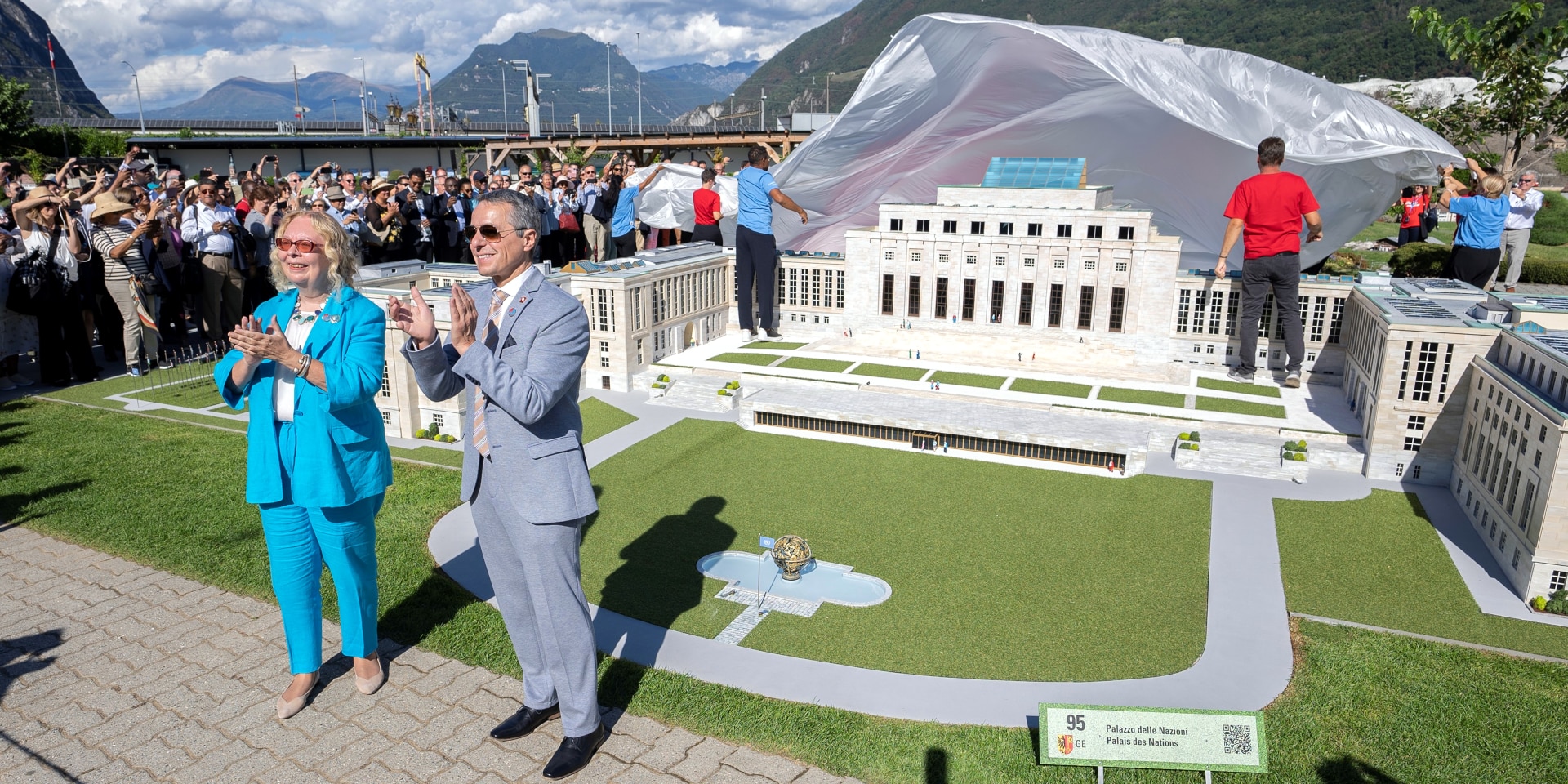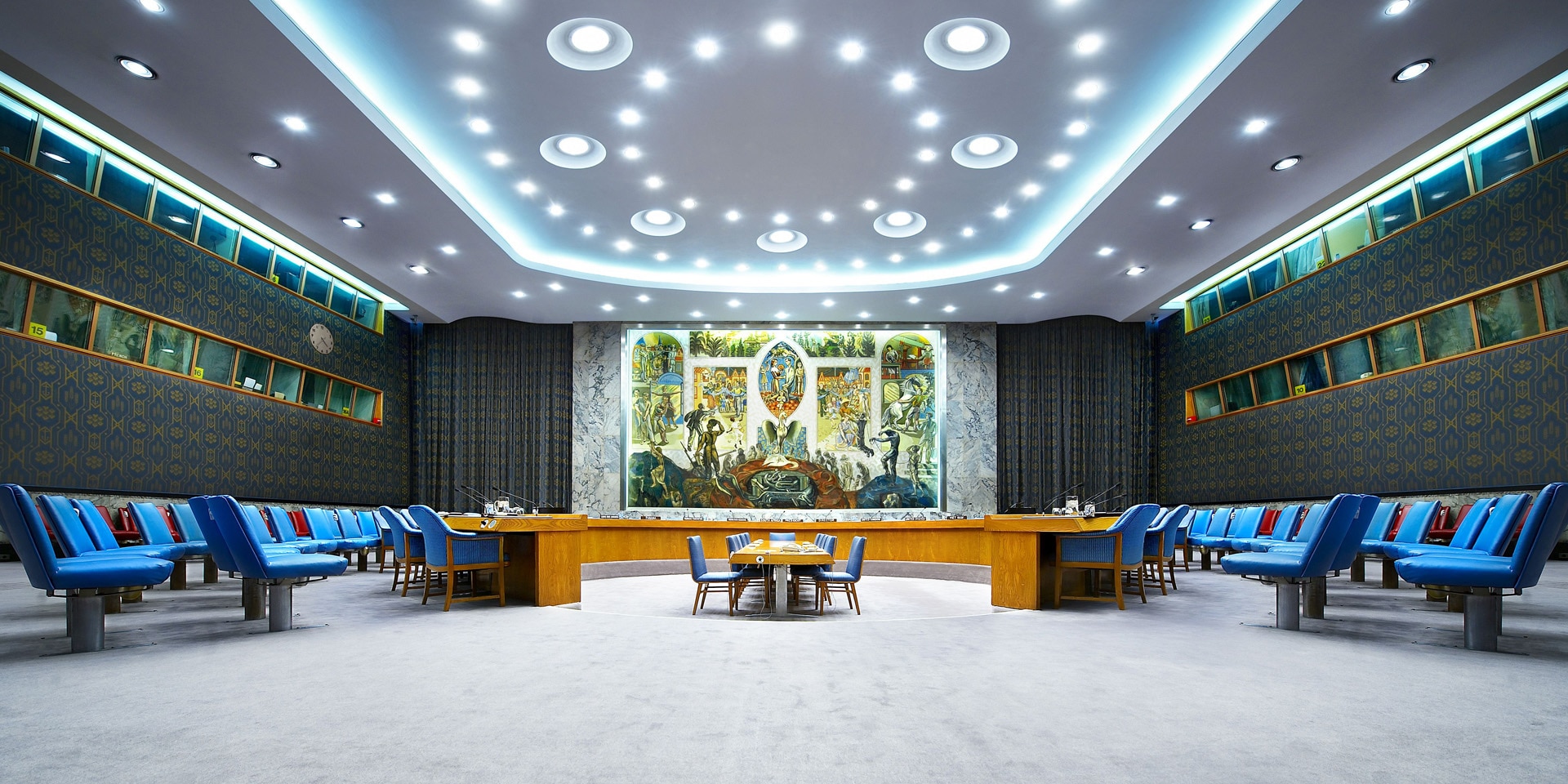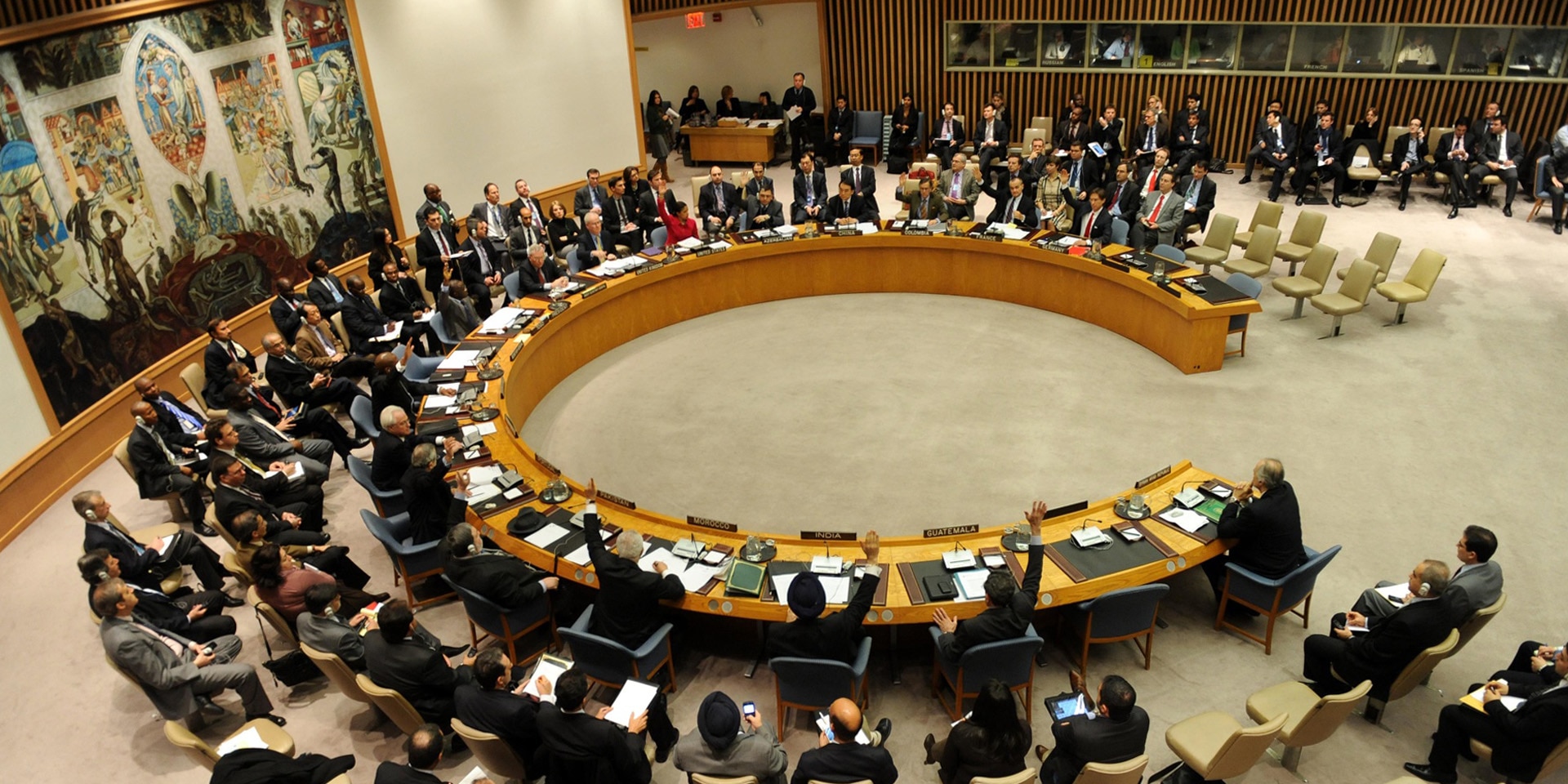"Switzerland has always had an interest in stability, peace and security"
Switzerland has had observer status in the UN Security Council since 1 October 2022. What does this mean and how are the preparations progressing for Switzerland's two-year term as a non-permanent member of the Security Council? Ambassador Thomas Gürber, the newly appointed head of the FDFA's UN Division, answers these questions in this interview.
On 9 June 2022, the UN General Assembly elected Switzerland by 187 votes to a non-permanent seat on the UN Security Council for the period 2023–24. This is a vote of confidence by the international community in Switzerland.
Mr Gürber, what does Switzerland intend to accomplish during its term on the UN Security Council to live up to this vote of confidence?
We very much value the trust that has been placed in us. And we will do our utmost to do justice to it. At the same time, we are keenly aware of the magnitude of the task ahead, as we are all facing major, concurrent crises: the impact of COVID-19, the war in Ukraine, and food and energy shortages. All pose major challenges to the international community and to multilateralism, even at the level of the UN Security Council. The Council is a mirror of the currently polarised geopolitical situation. That is why we will promote cooperation among its members to ensure that it retains its ability to take action in these difficult times. Cooperation and dialogue are key to our engagement because no single actor can change the world on its own.
Switzerland intends to fulfil its responsibilities and be active across the broad spectrum of geographic and thematic issues on the Security Council's agenda. The main goal of the UN Charter is our highest priority in this context: contributing to a peaceful, secure and rules-based international order. This goal is in line with the Federal Constitution. International law, our humanitarian tradition and the rule of law continue to be paramount for us. On the basis of these principles, we will take our positions within the Council – in line with the motto we chose for our candidacy: "A Plus for Peace".
What does Switzerland's observer status in the UN Security Council mean in concrete terms?
Switzerland's observer status will allow it to participate in the meetings of the Security Council from 1 October until it takes up its seat on 1 January 2023, albeit without voting rights. This observer status is a tremendous opportunity for our preparatory work. First, it enables us to get a good sense of the actual number, duration and substance of the Council's meetings; and, second, it allows us to observe how the Council's members interact with one another and to adjust our working methods accordingly.
In three months, it'll be time to get down to business. What preparatory work is the FDFA doing to take up its seat on 1 January 2023?
We have been preparing for our seat on the Security Council for several years – actually since 2011, when the Federal Council decided that Switzerland would submit its candidacy. The preparatory work Switzerland did during its candidacy, in which Parliament played an active role, paid off. Switzerland's election to the Council speaks volumes: since Switzerland joined the UN in 2022, no other country in Western Europe or in any other part of the world has been elected by a wider margin.
"The Federal Council defined the coordination and decision-making processes within the Federal Administration at the end of 2021. This was done on the basis of well-established structures that have long been part of the day-to-day work of other UN bodies such as the Human Rights Council. The Federal Council also determined, in consultation with Parliament, how Parliament would continue to be involved. We are now in the final phase of the preparatory work. For the duration of Switzerland's observer status, we will review and adjust these processes to ensure that Switzerland is optimally prepared for its first Security Council session in January 2023.
You took up the position of head of the UN Division this summer at a time when the world was in the midst of several crises. How are you experiencing this time, including in relation to the UN Security Council?
The war in Ukraine, a country in our immediate European neighbourhood, and the suffering it caused, affected me deeply when I took up the position. But in many parts of the world outside Europe, too, we have witnessed a steady increase in autocratic tendencies and wars in recent years. As a globally interconnected country, Switzerland has always had a vital interest in stability, security, peace, and the primacy of the rule of law over the rule of might. From next year, we will have what I think will be a unique opportunity to uphold these interests in the Security Council.
My diplomatic partners from other countries have underscored that Switzerland is predestined to play a role on the Security Council because of its historical experience, political culture and humanitarian tradition. I agree. But I took up this new post primarily because I was confident that Switzerland has the profile, tools and experience to enable it to play an effective role in this key UN body and make a concrete contribution to finding solutions for peace. It is this conviction that motivates my team and me every day anew.
Switzerland's priorities in the UN Security Council
On 31 August, the Federal Council adopted Switzerland's definitive priorities for its seat on the UN Security Council. These are:
- Building sustainable peace
- Protecting civilians
- Enhancing effectiveness
- Addressing climate security
These priorities are derived from the Federal Council's Foreign Policy Strategy and its humanitarian tradition. With these priorities, Switzerland can contribute to a more peaceful and stable world – the paramount objective enshrined in the UN Charter and Switzerland's Federal Constitution.
Switzerland's priorities for serving on the UN Security Council



